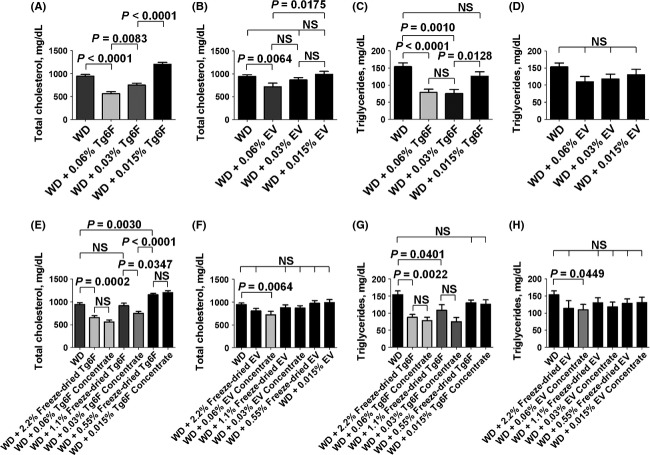Figure 2.
Dose response of tomato concentrates in a mouse model of dyslipidemia. Female LDLR null mice 4–5 months of age (n = 8–24 mice per group) were fed a Western diet (WD) or WD supplemented with 0.015%, 0.03% or 0.06% tomato concentrate by weight or the mice were fed the freeze-dried transgenic tomatoes from which the concentrates were made added to the WD at 0.55%, 1.1% or 2.2% by weight as described in Materials and Methods. After 2 weeks the mice were fasted overnight and plasma total cholesterol and triglycerides were determined as described in Materials and Methods. (A and B) Plasma total cholesterol levels for mice receiving Tg6F or EV tomato concentrates, respectively. (C and D) Plasma triglyceride levels for mice receiving Tg6F or EV tomato concentrates, respectively. (E and F) Plasma total cholesterol levels for the mice in (A and B), respectively, compared to mice that received the freeze-dried transgenic tomatoes from which the concentrates were made. (G and H) Plasma triglyceride levels for the mice in (C and D), respectively, compared to mice that received the freeze-dried transgenic tomatoes from which the concentrates were made. The data shown are mean ± SEM. NS, not significant; Tg6F, tomato concentrate from transgenic tomatoes expressing the 6F peptide; EV, tomato concentrate from transgenic tomatoes expressing the marker protein, β-glucuronidase. The experiment was done once.

